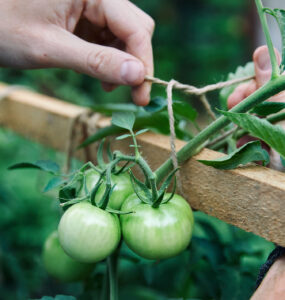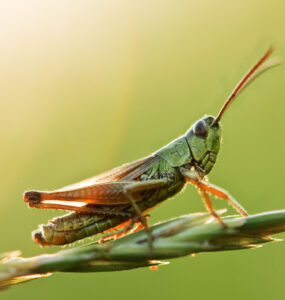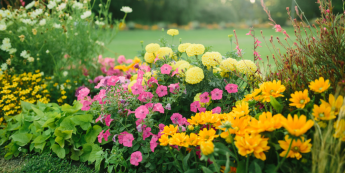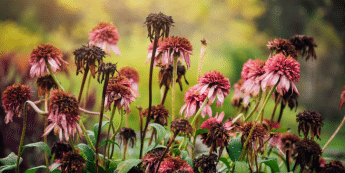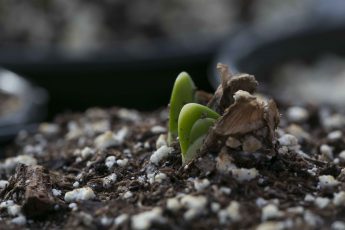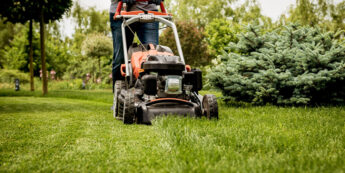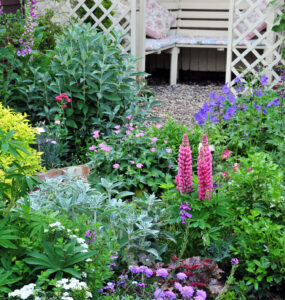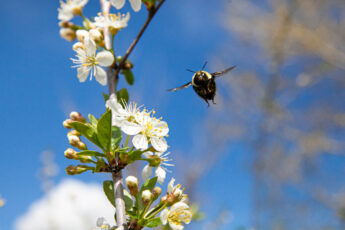
While hiring a professional gardener is a luxury afforded to a few of us, none of us truly do all the work on our own. In every garden in Edmonton, a whole team of hardworking souls is quietly toiling away, performing myriad tasks from pest control to soil conditioning. These are the beneficial insects that make up a large part of our backyard ecosystems, and they’re as critical to plant health as soil and water.
What are Beneficial Bugs?
Beneficial bugs, sometimes known as “˜beneficials,’ are organisms that positively affect the garden by virtue of their role in the ecosystem. They contribute to the balance of a healthy garden through multiple roles, including pest control, improving soil nutrient availability, and pollination. There are truly more life forms in the average garden than could be noted here. Still, this article will focus on some of the key players that often go unappreciated in the average Edmonton landscape. For the sake of simplicity, we’ll focus on two groups, predatory and pollinating insects””some of which you can find for sale at Salisbury!
Predators
Delay before you spray! These critters are highly effective at controlling common garden pests, and they’re much gentler on the ecosystem than man-made pesticides.
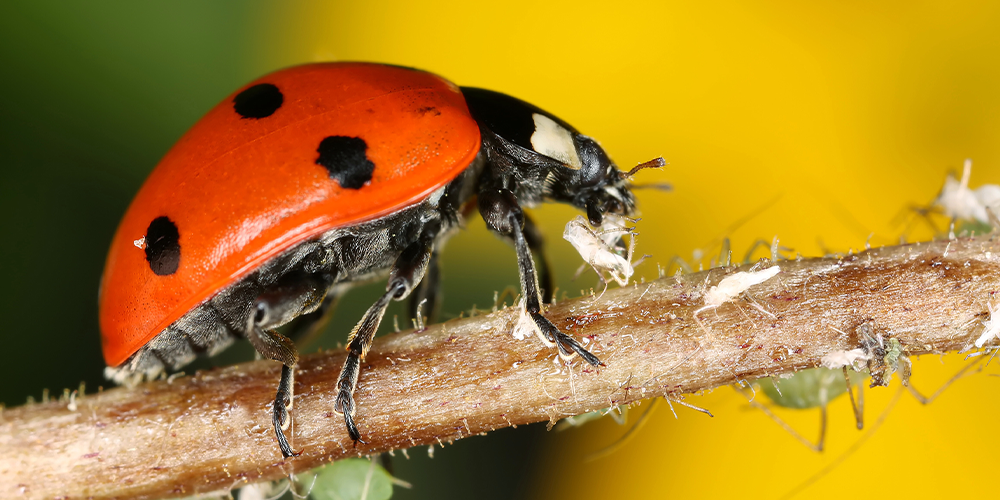
Ladybugs
Both a predator and a pollinator, ladybugs are some of the most efficient aphid hunters in your garden. While just about everyone recognizes the adorable polka-dotted shells of the adult insects, juvenile ladybugs are even more ravenous and efficient hunters than their mature counterparts. Unfortunately, the juvenile ladybug looks nothing like the adult, causing many well-meaning gardeners to mistake them for pests. Juvenile ladybugs are almost reptilian in appearance, with elongated black, spiny bodies and reddish markings.
Ladybugs overwinter in leaf litter, so the best way to keep them on your property is to avoid cleaning up leaf litter until the warm weather of late spring. (And even then, those leaves are much more useful as garden mulch than in yard waste bags!) You can also increase the population of these predatory pollinators by purchasing them when they go up for sale at Salisbury, typically in late spring to early summer.
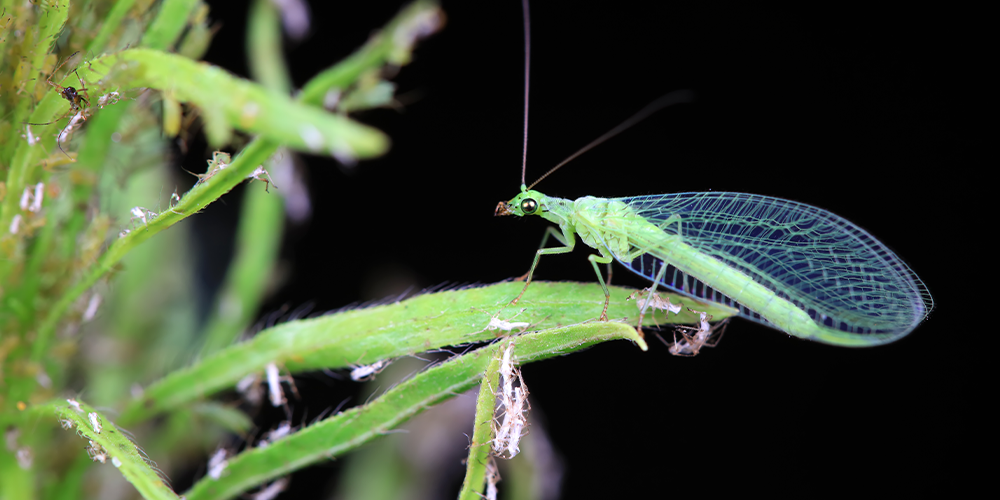
Lacewings
Another highly effective garden predator is the lacewing, a green-bodied flying insect that is abundant in Alberta. Like ladybugs, lacewing juveniles are also highly effective predators and are often mistaken for pests. The juveniles somewhat resemble sowbugs but with longer, segmented bodies. If you notice these bugs, or their small pea-shaped cocoons, leave them be! Once they hatch, they’re soon capable of eating their body weight in aphids each day. In their search for aphids to eat, these hungry insects are also very effective at pollinating your plants.
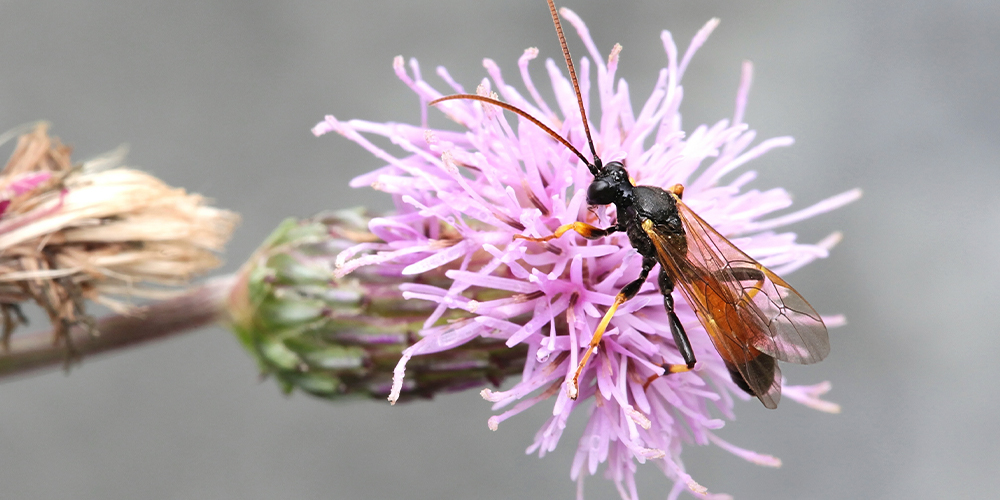
Parasitic Wasps
As much as the name of this preying and pollinating bug may cause you to cringe, these are some of the most fascinating, effective, and misunderstood insects in the gardening world. These tiny wasps are nothing like the maligned yellow jacket (which, to their credit, happen to be valuable pollinators); they are small and completely harmless to pets and humans. They’re particularly drawn to yards where plants in the Apiaceae (carrot) family are grown.
There are over 3000 species of parasitic wasps in North America, and many of them appear frightening due to their black, orange, or yellow colours, sleek bodies, and what appears to be a pronounced “stinger.” However, this apparatus is not a stinger at all but an ovipositor; a tube that injects eggs into the bodies of garden bugs like cutworms, grubs, and other soft-bodied pests. I’ll spare you the details, but this process keeps these pest populations well under control.
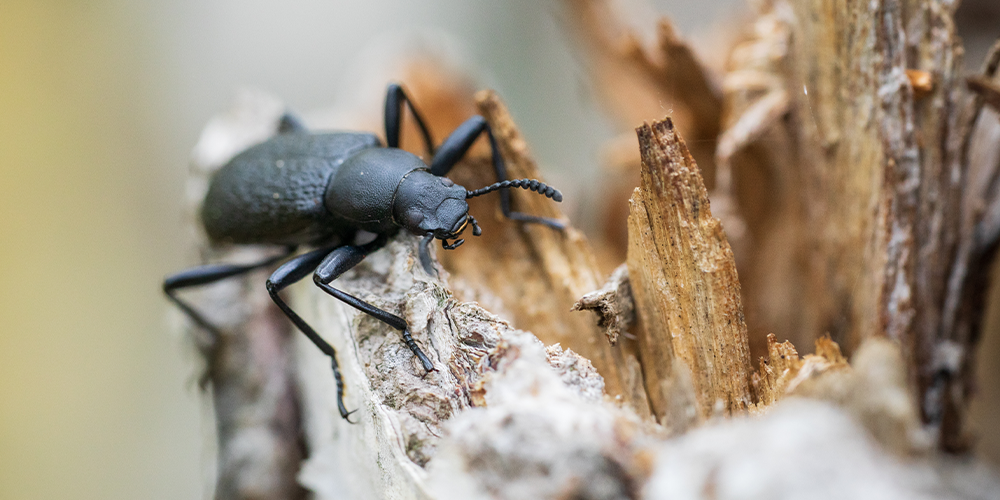
Ground Beetles
Another predator that produces babies only a mother could love”“”“ground beetles. These garden omnivores will happily eat just about any pest they meet. Interestingly, while the adults feast on above-ground pests, the larvae burrow under the soil and take out a significant number of soil-borne pests. However, as the juveniles are easily mistaken for centipedes (the key difference being that the young beetles have only six legs), they’re often wrongfully destroyed.
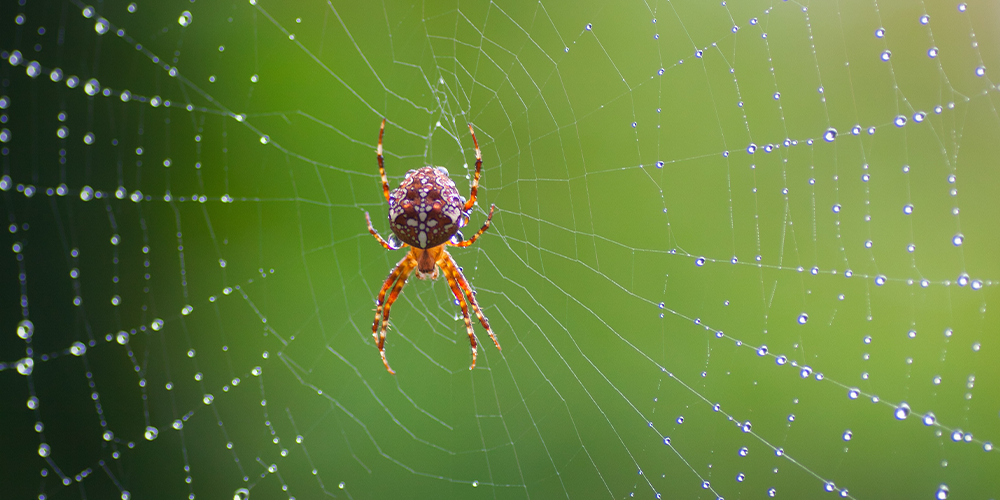
Spiders
You know what a spider looks like! While you may not care to be roommates with them, gardeners are encouraged to leave outdoor spiders to their own devices. They’re highly skilled at catching flying pests that other predators simply don’t have the equipment to catch.
Pollinators
Just about anything that makes contact with a flower’s surface can be a pollinator””even not-so-lovely insects like mosquitoes, ants, and house flies. However, these are some of the most valuable throughout Alberta.
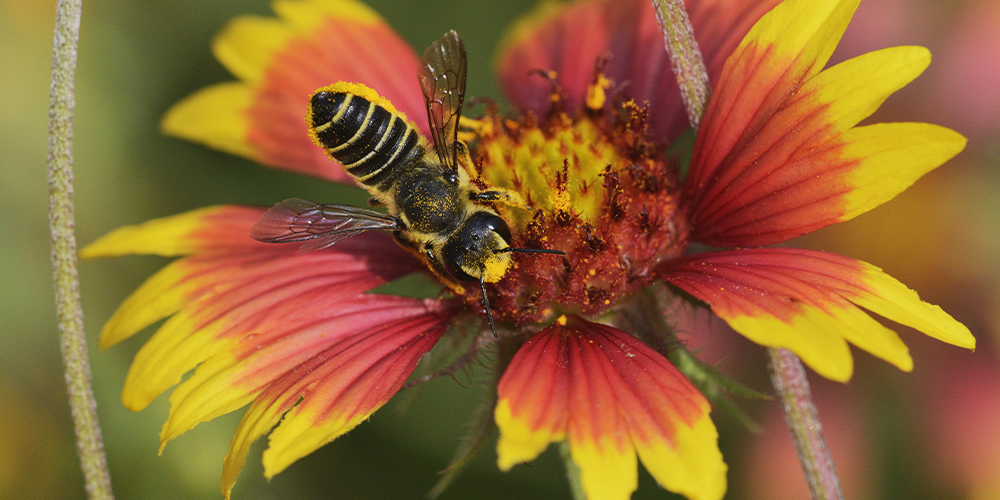
Bees
While the beloved honey bee is certainly one kind of bee, you might be surprised to learn that they’re hardly the only bee species in Edmonton””and in fact, aren’t even the best pollinators! Mason bees and leafcutter bees are both solitary bee species with very different lifestyles to the honey bee. These bees do not live in a colony, so rather than flying back and forth to a hive, they spend all of their time flying from flower to flower before their life cycles end with nesting and laying their eggs. Mason bees are yet another example of pollinating insects we carry for sale at Salisbury, and they’re fantastic. They have beautiful blue bodies, and they’re very docile to humans.
Butterflies & Moths
Who doesn’t fawn over the sight of a colourful butterfly? Attracting loads of these pretty pollinating insects is as simple as planting as many flowering plants as possible, ideally, ones that are also rich in nectar. If you hope to attract monarch butterflies specifically, make sure to plant native milkweed in the sunny areas of your garden. Not only is it beautiful, but it’s the only plant the monarch caterpillar can safely consume!
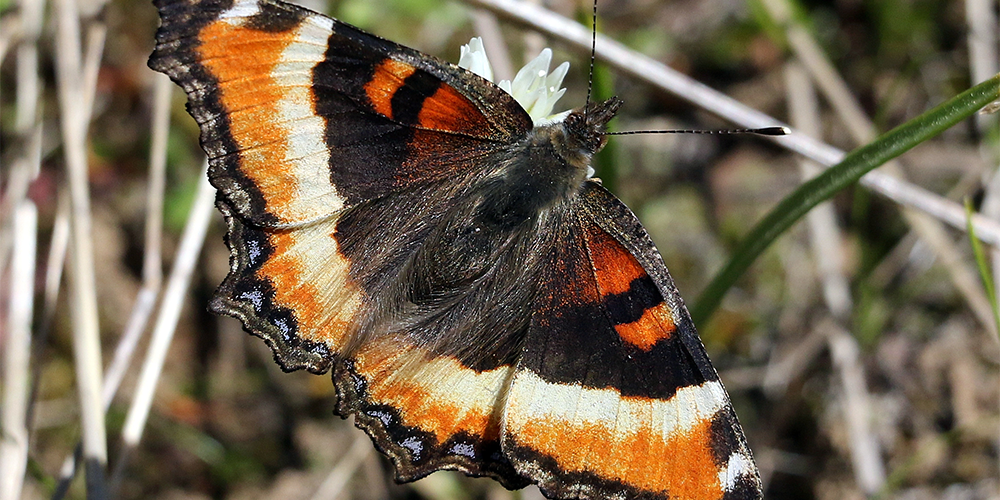
Other Beneficials
In addition to the many pollinators and predators in the garden, there are also many insects and organisms that work to improve your garden passively. Earthworms and other insects aerate the soil by burrowing and creating tunnels, while several species of fungi and bacteria perform essential functions like converting organic matter into plant-available nutrients. As gardeners, we don’t have to take an active role in encouraging these natural processes, but we can support them by exercising restraint using harsh chemicals like pesticides and herbicides.
We always recommend using the least invasive means of weed and pest control to cause minimal disruptions to all these hardworking insects; predatory, pollinating, and otherwise. For your own garden’s long-term well-being to always follow product packaging directions to the letter. We encourage you to first reach out to our team of experts for advice on your toughest gardening challenges.


